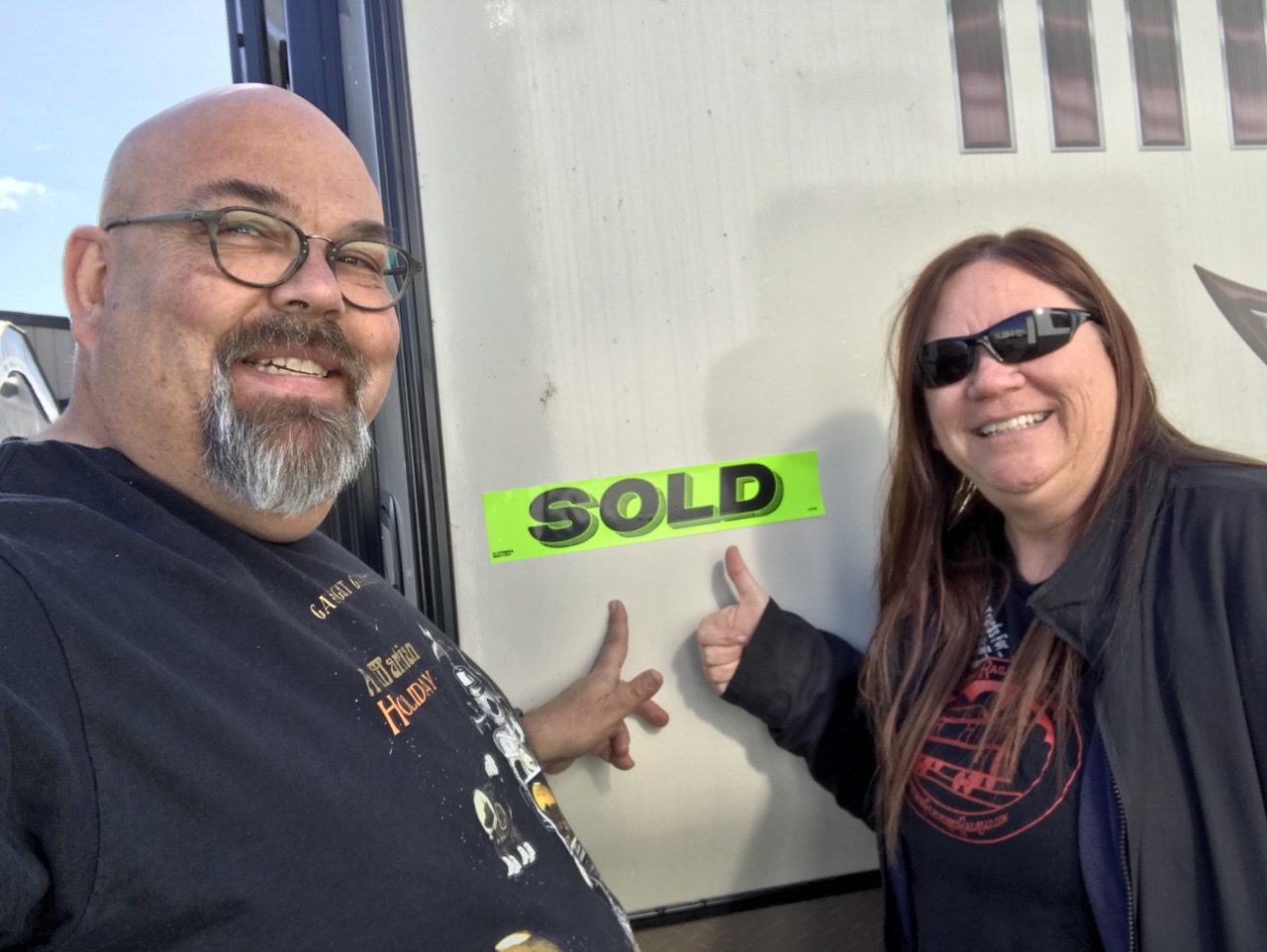Don't get scammed on the road - tips to avoid scams for RVers
Don’t let scammers ruin your RV adventure
You could easily get scammed on the road. As RVers, especially people who travel a lot, the chances that someone might “get” you in a scam can be pretty high. Further, resolving these scams can take time and suck the life out of any adventure.
Here are a few tips to avoid getting scammed.
We’ve been scammed
It’s so easy to trust companies or places that you “know” - especially when those companies notify you of an issue and the resolution is time-sensitive.
When you get a notification of a fraudulent charge being attempted on your card or an e-mail reporting an issue or any notification that there’s been a compromise on your account or that you have a payment due, STOP.
Scammers are very, very good at impersonating your financial institutions or other agencies and embark you on a process of worry and deceit, often fueled by a sense of urgency to resolve the situation. That urgency is a big part of the scam.
On one of our credit cards we do get text notifications of any transaction and we got one notifying us of a purchase at the Apple Store. A larger purchase. But we did’t make that purchase.
Ultimately we learned that this was a scam but it took us long enough to figure this out that it had already started to be a problem. Shortly after getting the text we then got a phone call which and the caller ID indicated it was from that bank with the potentially fraudulent charge.
And we were hooked.
How could we, and how can you, avoid being scammed?
There are lots of types of scams
Never tap or click on links. Ever.
Scammers have gotten really, really good at closely matching emails and text messages from banks and other organizations.
It’s best practice never to click on links in emails or links in text messages.
What happens is these links look legitimate and so do the places where they send you to. Then they might ask for a username and password and now they have access to your personal information.
Actual website for the toll road provider with a warning
If you get a call - don’t answer
This was something that got us - after getting a text that looks like it came from our credit card company about the large attempted purchase we then got a phone call and the caller ID identified as our credit card company.
While we ultimately figured out that it was a scam we had to get a new credit card and deal with some frustrations at the actual credit card company in the following days.
It’s really easy to spoof a telephone number, text message profile or website nowadays.
What would have been smarter is for us to have seen the incoming call and then ignored it. Same with the text message.
Sure, it looked real but it wasn’t.
Here are some tips to avoid getting scammed
If you get an email, phone call or text message from any company the best thing to do is to go to the known source for that company.
For example, if you receive an email from your bank and there’s a place to click or tap the link, don’t.
Instead go to directly to the bank’s website and log in as you normally would. In fact, don’t even Google the bank. Today, go to the websites, and set-up book marks for known trusted resources from the companies you deal with.
That way you know you’re in the right place rather than a spoof of the website that the scammers have sent you. And, believe me, those spoofs are really convincing.
The same is true of a phone call. I mentioned that we got a phone call that identified as coming from our credit card company but it was a scam. What we should have done is never answer. If you suspect or are notified of a fraudulant charge, call the credit card company directly using the number that you know is correct.
This takes only a small effort in advance to set-up bookmarks on your phone or computer, for the companies you deal with along with the phone numbers for those companies in your address book. But if there’s ever a question or, even worse, if you lose your credit card, having the company’s number in your phone’s contacts is going to make it much easier to resolve that problem.
The phone numbers for each of your credit cards, for example, is typically printed right on the credit card itself. Usually this is on the back in small print, but if you add it to your phone’s contacts now it’s easy to find.
Fraud text message notifying us of a toll due
They tried again
What made me write this article is a text message we received that seemed to come from a road toll agency in Southern California. The link appeared to be legitimate.
So the natural inclination is to tap on that link and pay the toll.
Except we were in New Mexico, not Southern California.
But, out of curiosity, we went directly to the legitimate website that the text message claimed to represent and, there on the agencies website, it very specifically warned of this type of scam.
Unfortunately had we not followed our own advice in this article, we might have tapped on the text message and paid “the toll.” But now the scammers would have our credit card number. Sure, we would have ultimately prevailed in any claim, but what a pain in the neck while you’re traveling.
Now this was easy, we weren’t anywhere near those toll roads so this was someone trying to get us to do something stupid. But what if we had been? Millions of people traverse these roads every day so there’s absolutely a chance that they’ll get some of them.
Conclusions
It stinks that we can’t trust email or text messaging or even phone calls, but we can’t. Being vigilant will help keep you out of trouble
More Resources
We are big fans and advocates of Clark Howard, a consumer and financial guru. Here are some of his links that have proven valuable:
Clark’s collection of scams and rip offs: https://clark.com/scams-rip-offs/
Clark’s number one rule about email scams: https://clark.com/scams-rip-offs/email-scams/
Never click on random text messages: https://clark.com/scams-rip-offs/avoid-text-message-scams/
We also listen to The Perfect Scam Podcast. It’s pretty fascinating: https://www.aarp.org/podcasts/the-perfect-scam.html
And no, the irony that we have links in an article that encourages you to avoid clicking on links doesn’t escape us. You could look these up yourself if you are so inclined.






